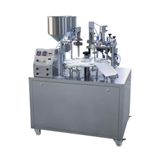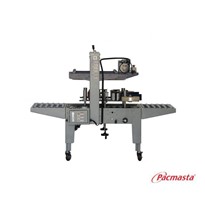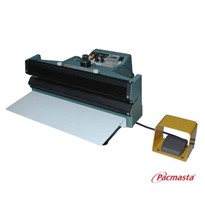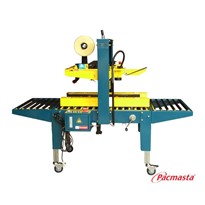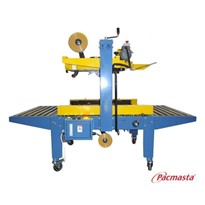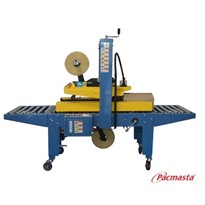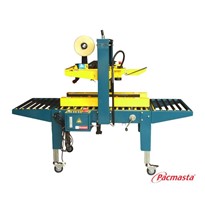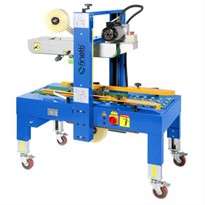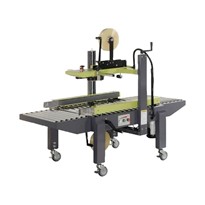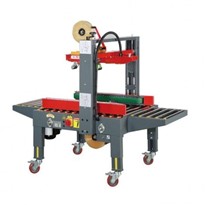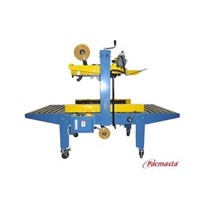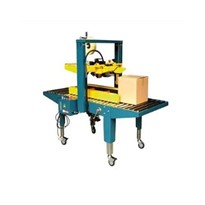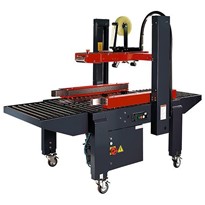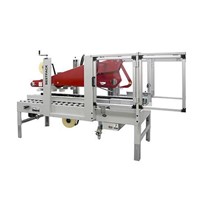Sealing cartons will depend on the type of carton, the product enclosed and the shipping method. The most common sealing methods are plastic pressure-sensitive tapes, water-activated paper tape, staples and glue.
Pressure-sensitive tape
Pressure-sensitive plastic tapes are the most commonly used carton sealing option. These tapes are made from petroleum and are not biodegradable.
Advantages
- Plastic pressure-sensitive tapes are easily applied with a tape gun or dispenser
- They are transparent so company branding and handling instructions on the cartons is visible
- Water activation or solvents are not needed to stick the tape to the carton surface
Disadvantages
- Tampering with the carton is easy compared to other forms of carton sealing
- Tamper evidence is not visible
- Plastic tapes float on the surface of the carton so seals are easily broken or torn
- They are made from non-sustainable resources
- Usually applied with a hand-operated tape gun which can cause repetitive strain injury
- They are not resistant to environmental conditions such as moisture and UV exposure
- Tapes and dispensers are noisy to use
- Careful application is needed or tapes will scrunch and buckle
- Tapes need more than one strip to seal with a risk of excessive amounts of tape wasted and more time is taken to seal
Ideal situations
- Sealing lightweight cartons
- Sealing cartons that will be palletized and protected with pallet wrap
- Cartons containing inexpensive items
- Cartons that don’t contain items that would encourage tampering and theft
Water Activated Tape
Water-activated tape is predominantly made of kraft paper and gum adhesive. These tapes are either brown or white. Some reinforced gummed paper tapes are strengthened with layers of fibreglass. Water-activated tape dispensers apply moisture to the adhesive as the tape is being dispensed.
Advantages
- The water-activated adhesives in gummed paper tape penetrate the fibres of the carton, creating a total bond
- The tape cannot be removed from the carton without leaving traces of damage, unlike pressure-sensitive tapes
- Water-activated tape is made from renewable natural resources such as recycled paper and natural gums
- Recycling cartons is easier as the paper tape does not need to be removed before placing into the waste stream
- The adhesive bonds instantly to cardboard, even if it is low grade, previously used, or not entirely flat
- Requires only one strip per seal. Overlapping strips are unnecessary, saving on tape usage and packing time
- Reduces risk of repetitive strain injury as water-activated tape bench-top dispensers replace the use of heavy handheld tape guns needed to apply plastic pressure-sensitive tapes
- Branding can be printed on the tape
- Dispensers can be electronic, semi-electronic or manual operation
- The dispenser can be set to dispense the right lengths of tape for variable carton sizes
Disadvantages
- Requires a more expensive tape dispenser
- Cannot be used with a tape gun
Ideal situations
- Cartons with heavy contents
- Cartons containing costly items
- Cartons that require tamper-evident sealing
- Variable carton sizes
- Fast-paced carton sealing by hand
- Marketing and branding on cartons
Stapling
Staples are made of metal strips and are a bigger and more robust version of the paper staples you have in the office. Carton stapling is much heavier duty and is used to hold the seals, corner reinforcement and edge boards in place.
Advantages
- Staples are a sturdy sealer
- Staple seals hold up to the rigours of shipping and multiple handling
- They are tamper-evident
Disadvantages
- Stapled cartons are hard to open
- The carton will get damaged when opened
- Potential to cut your hands on a staple while grappling with the seal
- Staples may tear pallet wrapping if cartons are palletized
- Goods contained in the carton need extra lining for protection from staples
- Difficult to separate out the staples so the cardboard can be recycled
Ideal situations
- Cartons containing very heavy goods
- Palletized heavy goods that need to be freighted by truck or rail
Glues
Polypropylene adhesive is the glue used to seal cartons. It will bond with most materials and forms a flexible yet tamper-evident seal.
Advantages
- Is resilient to most environmental factors such as moisture, heat, cold and UV exposure
- Glues are able to be used in a factory setting with high demand machine sealing
- Is tamper-evident
Disadvantages
- Costly machinery is required
- Regular machinery maintenance is required
- Fumes can be harmful and expensive ventilation is required
- Messy and leaking glue can damage goods and packaging
Ideal situation
- Factory situations with fast-paced production lines and uniform sized goods
So far we have looked at some tried and true methods and some innovative carton sealing options that are robust and set to change the way we do carton sealing into the future. Moving more towards sustainable carton sealing is not only good for your company green credentials but also good for the bottom dollar in the long run.
Strapping
Strapping for cartons is often made of polypropylene. Stapping is used to keep cartons intact during transport, especially if the items contained are heavy or the carton is not able to be sealed with tape or staples. Strapping can be applied to cartons with a hand strapping tool or by a speedy automatic strapping machine.
Advantages
- The carton stays securely closed without risk of closing flaps or lid opening
- Reinforces the carton to hold heavy contents
- No damage to products
- Strapping is lightweight with a high holding strength
- Most strapping is recyclable
Disadvantages
- Strapping can be recycled but not in a local recycling facility
- Sealing a carton can take time if done by hand
- Busy production lines need expensive strapping machines to keep up with output
Ideal situations
- When using a strapping machine in a fast-paced factory
- Sealing heavy items in a carton
- In freight situations when goods are loaded and unloaded multiple times


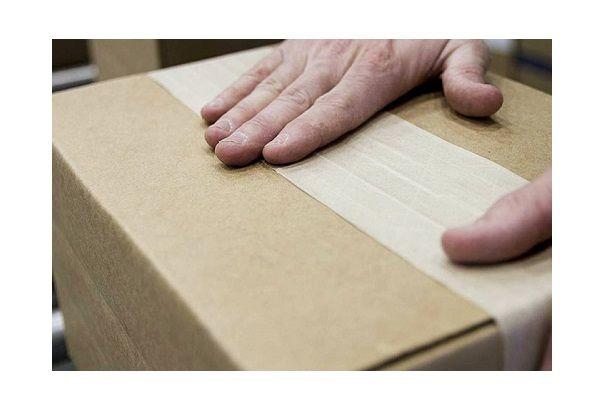



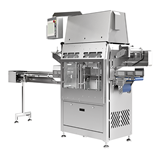
-160x160-state_article-rel-cat.png)
